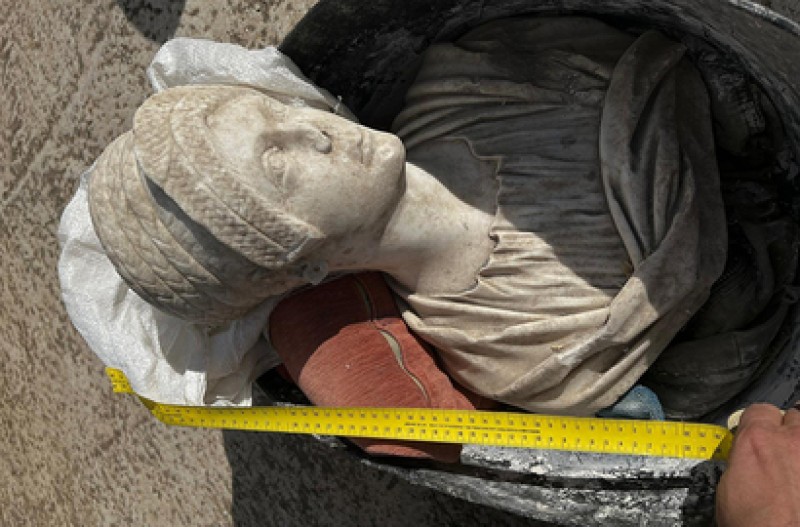This latest edition of the operation ran between September 13 and 24, 2022. During this time, customs and law enforcement authorities from 14 European nations carried out thousands of checks at various airports, ports, and border crossing points, as well as in auction houses, museums, and private homes, a Europol statement said on Thursday.
In addition, two cyber patrol weeks were held in May and October, resulting in over 8,495 online checks being conducted, and over 4,000 stolen goods were seized.
A range of stolen artifacts was recovered, including 77 ancient books from an online marketplace in Italy that were stolen from the archives of a monastery.
The Civil Guard in Sevilla, Spain, recovered a Roman marble bust of a woman believed to represent Salonia Matidia, the niece of the emperor Traian.
Polish police seized over 3,000 ancient coins from an online sales platform, and Romanian law enforcement recovered an additional 117 Dacian and Roman coins after an archaeological site was looted.
Portuguese authorities recovered 48 religious sculptures and other religious artifacts believed to be linked to a series of 15 robberies carried out in churches across the northern part of the country between 1992 and 2003.
Greek police confiscated during a house search an additional 41 religious and liturgical objects, such as icons and altarpieces moldings.
About 130 ongoing investigations are expected to result in more arrests and seizures as investigators worldwide go after those spoiling and destroying cultural heritage.
Operation Pandora, first launched in 2016, is an annual law enforcement operation aimed at disrupting criminal networks engaged in the theft and exploitation of cultural property and identifying potential links to other criminal activities.



